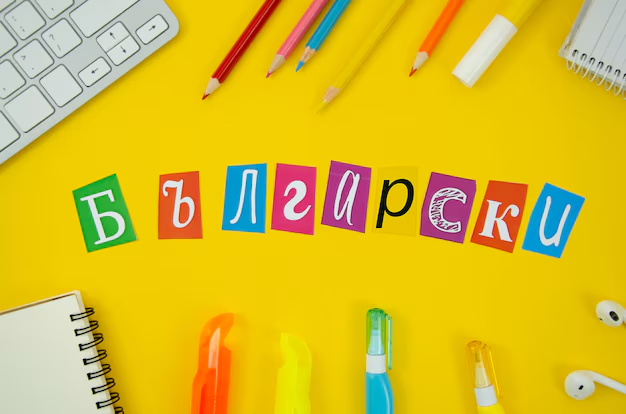
1. creation of the Russian Language
The Russian language, referred to as “Русский язык” (Russkiy Yazyk), is one of the most widely spoken languages within the globe. With over 258 million speakers globally, it serves as the respectable language of Russia and a key medium of communication in several neighboring global locations. As one of the six legitimate languages of the United International locations, Russian holds big significance in global family participants, generation, and cultural exchange.
2. historic Roots and Evolution
The Russian language originates within the Slavic linguistic family, which emerged in the 6th century. Over time, it advanced into three important branches: East Slavic, West Slavic, and South Slavic. Russian belongs to the East Slavic agency, together with Ukrainian and Belarusian. The improvement of vintage East Slavic, brought on by the aid of the Byzantine way of life and Orthodox Christianity, laid the muse for present-day Russian.
For the duration of the 18th and 19th centuries, reforms by using Peter the 2927099c7129e5e67b031f9eb65b6349 and unique leaders included Western European linguistic elements, enriching the language. The creation of the Cyrillic alphabet with the useful resource of Saints Cyril and Methodius in the ninth century remains a cornerstone of Russian linguistics.
3. Linguistic skills of Russian
Russian is well-known for its rich and complicated linguistic structure. Key capabilities encompass:
a. Cyrillic Alphabet: The Russian alphabet consists of 33 letters. It’s far phonetic, and because of this terms are suggested as they are written.
b. instances: Russian employs six grammatical instances—Nominative, Accusative, Genitive, Dative, Instrumental, and Prepositional. Those cases determine the characteristics of words within sentences.
c. Verbal elements: Verbs in Russian have factors: imperfective (denoting ongoing actions) and perfective (denoting completed moves).
d. stress: The phrase stress in Russian is unpredictable and modifications that mean. as an example, “замо́к” (zamók) manner “lock,” at the same time as “замоќ” (zamóokay) manner “castle.”
4. Why analyze Russian?
Learning Russian gives a plethora of blessings:
a. Cultural insight: Russian literature, music, and cinema are globally celebexcellentd. Masterpieces the use of authors like Tolstoy and Dostoevsky or compositions through Tchaikovsky come alive when professional in their neighborhood language.
b. profession opportunities: talent in Russia opens doorways to international corporations, diplomacy, and tourism. With Russia being a 2927099c7129e5e67b031f9eb65b6349 player in international politics and economics, bilingual experts are an immoderate name.
c. excursion and verbal exchange: traveling through Russia and previous Soviet states turns into more enriching and seamless at the same time as you apprehend the language.
d. Cognitive advantages: getting to know Russian enhances cognitive competencies, along with hassle-solving and reminiscence retention, due to its complicated grammar and vocabulary.
5. Hints for mastering Russian
Reading Russian calls for dedication, however, the ones pointers can simplify the method:
a. begin with basics: get yourself up to speed with the Cyrillic alphabet and commonplace terms.
b. Immerse yourself: interact with Russian media which incorporates movies, tunes, and news. Structures like YouTube offer unfastened language tutorials.
c. exercise speakme: everyday verbal exchange with neighborhood speakers or language partners complements fluency.
d. Use Language Apps: Apps like Duolingo, Rosetta Stone, and Memrise make analyzing interactive and amusing.
e. be a part of training or rent Tutors: primarily based steering speeds up your progress.
6. traumatic conditions of mastering Russian
Even as worthwhile, Russian may be tough:
a. Grammar Complexity: The six instances and verb conjugations may be overwhelming for beginners.
b. Vocabulary Memorization: Russian has many particular phrases that require constant practice.
c. Pronunciation: getting to know the stress and intonation may be tough.
Overcoming those hurdles needs patience and persistence.
7. amusing facts about Russian
Longest word: one of the longest Russian phrases is “приветствоваться” (privetstvovat’sya), which means “to greet each different.”
Place Language: Russian is an obligatory language for astronauts in the global vicinity Station.
Wealthy Vocabulary: Russian has over 500,000 words, even though the common speaker makes use of approximately 2,000 often.

8. have an effect on Russian in different Languages
Russian has contributed numerous loanwords to distinctive languages, particularly in technological know-how and politics. Phrases like “sputnik” and “perestroika” are the world over recognized. In addition, Russian borrows from different languages, reflecting its historic exchanges.
9. The Destiny of the Russian Language
As globalization intensifies, the Russian language keeps complying. Digital gear and structures are making it more reachable, ensuring its relevance in the twenty-first century. Moreover, initiatives to sell Russian subculture and schooling overseas are expanding its attain.
10. end
The Russian language is greater than a manner of communication; it’s miles a gateway to information a wealthy cultural heritage and unlocking numerous possibilities. Whether for personal enrichment, academic pursuits, or expert increase, gaining knowledge of Russian is a profitable journey that bridges cultures and fosters worldwide connections.
FAQs approximately the Russian Language
Q1: Is Russian hard to examine?
A1: Russian can be difficult because of its grammar and pronunciation, however with normal practice and the proper property, it will become viable.
Q2: How long does it take to analyze Russia?
A2: It depends on your strength of mind. Number one proficiency can take 6-three hundred and sixty-five days, the identical time as fluency can also require numerous years.
Q3: What are the first-rate assets for studying Russian?
A3: Language apps (e.g., Duolingo), online publications, books, and attractive neighborhood speakers are effective.
Q4: Do I need to analyze the Cyrillic alphabet?
A4: sure, it’s important as Russian is written in Cyrillic. Gaining knowledge of it is step one to studying the language.
Q5: Which countries speak Russian?
A5: besides Russia, Russian is widely spoken in Belarus, Kazakhstan, Kyrgyzstan, and numerous other international locations in Japanese Europe and crucial Asia.
Q6: What makes Russia specific?
A6: Its use of time, wealthy vocabulary, and cultural significance make Russian a captivating language to examine.




Average Rating